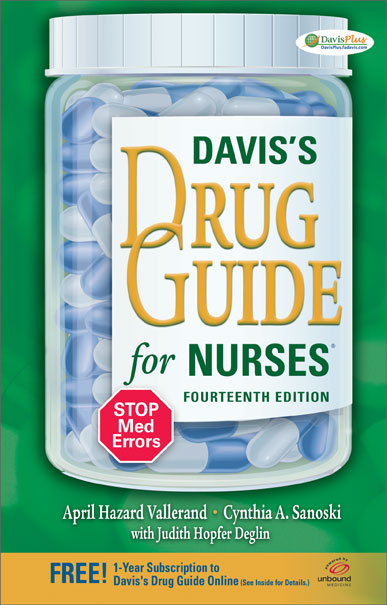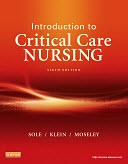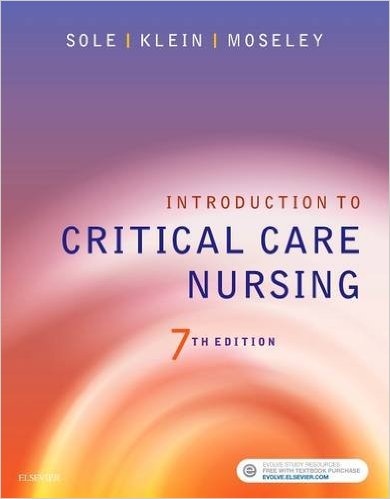| Course Number: | NR341 |
|---|---|
| Course Title: | Complex Adult Health |
| Credit Hours: | 4 |
| Theory Hours: | 3 |
| Laboratory Hours: | 0 |
| Clinical Hours: | 1 |
| Place in Curriculum | Year 3 Semester 1 |
| Prerequisite: | NR282 or NR283, NR292 or NR293, NR325, PSYC290 Military to BSN Option: NR295, NR325, PSYC290 LVN 30 Unit Option: NR326, NR329 |
| Corequisite: | None |
Syllabus
Overview
Course Description
Adult patients with unstable emergent critical illnesses are the focus of this course. Students integrate nursing, technological and scientific knowledge with clinical judgment to potentiate optimal health with a diverse patient population. Students utilize comprehensive assessment techniques, advanced nursing skills and multiple nursing modalities to maximize optimal health. A variety of population and settings are used in the experiential learning component of this course.
Textbooks and Resources
Required Textbooks
The following books are required for this course:
Sole, M.L., Klein, D.G., & Moseley, M.J. (2013). Introduction to critical care nursing (6th ed). St. Louis, MO: Elsevier.

Vallerand, A. H. & Sanoski, C. A. (with Deglin, J. H.). (2014). Davis's drug guide for nurses. (14th ed.). Philadelphia, PA: F.A. Davis.

American Psychological Association. (2010). Publication manual of the American Psychological Association (6th ed.). Washington, DC: Author.
Optional Textbooks
The following books are required for this course:
Sole, M.L., Klein, D.G., & Moseley, M.J. (2017). Introduction to critical care nursing (7th ed). St. Louis, MO: Elsevier.
Information regarding supplementary material, software, etc.
Physical Books and Supplies
To obtain all your books and supplies, visit the online Chamberlain bookstore at https://bookstore.chamberlain.edu/.
eBook Details
First Time Using VitalSource?
Step 1: View the VitalSource Video
Step 2: Register with VitalSource Bookshelf Online
- Click the cover or title of your eBook. A new window will open.
- Enter email address and password. Bookshelf Online will open.
Step 3: Access the Desktop and Mobile Versions
You must complete Step 2 prior to using the desktop or mobile versions.
Already Registered? 3 Ways to Access Your eBooks

Online
Access your eBook by clicking on the book cover or title in the syllabus page. Bookshelf Online will open.

Desktop
Download your eBooks and use them whether you're connected to the Internet or not.

Mobile
Download the app and get your eBooks on your iPhone, iPad, or Android device.
Program Outcomes
The outcomes for the Bachelor of Science in Nursing (BSN) degree program are as follows:
1
Provides individualized comprehensive care based on theories and principles of nursing and related disciplines to individuals, families, aggregates and communities, from entry to the healthcare system through long-term planning.
2
Demonstrates leadership and collaboration with consumers and other healthcare providers in providing care and/or delegating responsibilities for health promotion, illness prevention, health restoration, health maintenance and rehabilitative activities.
3
Communicates effectively with patient populations and other healthcare providers in managing the healthcare of individuals, families, aggregates and communities.
4
Integrates clinical judgment in professional decision making and implementation of the nursing process.
5
Demonstrates responsibility for continued personal and professional development through enrollment in graduate education, continuing education degree programs, professional reading and participation in professional organizations and community service.
6
Implements professional nursing standards by practicing within the legal definitions of nursing practice and acts in accordance with the nursing code of ethics and American Nurses Association (ANA) standards of practice.
7
Practices in established professional roles consistent with entry-level BSN graduates to provide cost-effective, quality healthcare to consumers in structured and unstructured settings.
8
Incorporates evidence-based practice in the provision of professional nursing care to individuals, families, aggregates and communities.
Course Outcomes
Chamberlain College of Nursing courses are built to align course content with specific Course Outcomes (COs). The COs define the learning objectives that the student will be required to comprehend and demonstrate by course completion. Unit outcomes provide further detail to support learner achievement of specific COs and are listed within each unit under the introduction. Whenever possible, a reference will be made from a particular assignment or discussion back to the CO that it emphasizes.
Upon completion of this course, the student will be able to do the following.
1
Provide nursing care to patients and their families in critical and emergent care settings based on theories and principles of nursing and related disciplines. (PO 1)
2
Initiate the use of appropriate resources in direct care responsibilities within critical-care and emergent care settings. (PO 2)
3
Demonstrate effective therapeutic communication and relationship skills in providing care to patients and families in critical-care and emergent care settings. (PO 3)
4
Demonstrate effective clinical decision making based on critical thinking skills and legal, ethical, and professional standards and principles when caring for patients and families in critical-care and emergent care settings. (POs 4 and 6)
5
Implement a plan of care for continued personal, professional, and educational development related to nursing practice within critical-care and emergent care settings. (PO 5)
6
Practice competently in professional nursing roles in critical-care and emergent care settings under supervision of faculty and/or designated staff nurse. (PO 7)
7
Use evidence including research findings from nursing and related disciplines to answer clinical questions related to nursing care of patients in critical-care and emergent care settings. (PO 8)
Key Concepts
1
Pain Management and Comfort Care
2
Ethical and Legal Issues in Critical-Care Nursing
3
Respiratory Alterations
4
Dysrhythmias
5
Hemodynamic Alterations
- Hemodynamic Monitoring
- Shock
6
Acute Trauma
7
Acute Neurologic Alterations
8
Urgent and Unstable Conditions
- Burns
- Acute Renal Failure
9
Acute Gastrointestinal Alterations
10
Acute Endocrine Dysfunction
Learning Plan
Download and review the NR341 Complex Adult Health Learning Plan. This learning plan provides a list of unit outcomes and detailed key topics covered in the course.
Required Uniform Assignments (RUAs)
Required Uniform Assignments (RUAs) are essential elements of assessment that are consistent across the curriculum at Chamberlain College of Nursing. These assessments help measure and track students' progress in meeting the BSN Program Outcomes. Each RUA is course-specific and required in both online and campus courses. Download the Interdisciplinary Care guidelines and grading rubric to begin planning for the successful completion of this assignment.
If you have any questions about the assignment please speak to your instructor.
Course Schedule
| Readings | Assignments | |
|---|---|---|
Unit 1 COs 1, 4, 5, and 7 Welcome to Critical Care! | Sole, M.L., Klein, D.G., & Moseley, M.J. (2017). Introduction to critical care nursing (7th ed.). St. Louis, MO: Elsevier.
| Refer to Faculty Course Schedule for assignments. |
Unit 2 COs 1, 4, 5, and 7 Take a Deep Breath, It's Respiratory | Sole, M.L., Klein, D.G., & Moseley, M.J. (2017). Introduction to critical care nursing (7th ed.). St. Louis, MO: Elsevier.
| Complete textbook exercises at the end of assigned chapters. HESI RN case study |
| Exam 1 (Units 1 and 2) | ||
Unit 3 COs 1, 4, 5, and 7 Rhythm Matters
| Sole, M.L., Klein, D.G., & Moseley, M.J. (2017). Introduction to critical care nursing (7th ed.). St. Louis, MO: Elsevier
| Standardized Clinical Experience (SCE) Complete textbook exercises at the end of assigned chapters. HESI RN case study |
Unit 4 COs 1, 2, 4, 5, and 7 It's All About the Pressure | Sole, M.L., Klein, D.G., & Moseley, M.J. (2017). Introduction to critical care nursing (7th ed.). St. Louis, MO: Elsevier.
| Standardized Clinical Experience (SCE) Complete textbook exercises at the end of assigned chapters. |
| Exam 2 (Units 3 and 4) | ||
Unit 5 COs 1, 4, 5, and 7 Preparing for the Unexpected | Sole, M.L., Klein, D.G., & Moseley, M.J. (2017). Introduction to critical care nursing (7th ed.). St. Louis, MO: Elsevier.
| Standardized Clinical Experience (SCE) Complete textbook exercises at the end of assigned chapters. |
Unit 6 COs 1, 2, 3, 4, 5, and 7 It's a Tight Space | Sole, M.L., Klein, D.G., & Moseley, M.J. (2017). Introduction to critical care nursing (7th ed.). St. Louis, MO: Elsevier.
| Standardized Clinical Experience (SCE) Complete textbook exercises at the end of assigned chapters. HESI RN case studies |
| Exam 3 (Units 5 & 6) | ||
Unit 7 COs 1, 2, 4, 5, and 7 Checks and Balances | Sole, M.L., Klein, D.G., & Moseley, M.J. (2017). Introduction to critical care nursing (7th ed.). St. Louis, MO: Elsevier.
| Standardized Clinical Experience (SCE) Complete textbook exercises at the end of assigned chapters. HESI RN case studies |
Unit 8 All COs All Topics | Review previously assigned readings, as needed. | Standardized Clinical Experience (SCE) Final Exam |
Attendance Policy
Regular attendance and consistent participation within the classroom, lab, and clinical experiences facilitate the achievement of course outcomes set forth in the course syllabi. Students must arrive on time and stay for the duration of the class meeting, lab, and/or clinical experience. Late arrival may result in denied access to the class. Absences and/or tardiness from lecture, pre-clinical, clinical (including pre- and post-conferences), and/or lab experiences (including pre- and debriefing) may prohibit students from completing all components of the nursing course, resulting in course failure.
Attendance is tracked for all eight weeks of the session on a course-by-course basis and is recorded daily based on academic events. An academic event for onsite courses is defined by attending scheduled class meetings. An academic event for online courses is defined by submitting a class assignment, participating in threaded discussions, or completing quizzes and exams. An academic event for blended courses is defined by attendance in the onsite component or by submitting a class assignment, participating in threaded discussions or completing quizzes and exams in the online component.
Laboratory Class and Clinical Experiences
Lab time is utilized to practice and master skills to meet criteria that demonstrate completion of course outcomes. Students must complete all required lab, clinical and pre-clinical experiences in order to satisfy the clinical hours for each course. Demonstration of nursing skills and/or required competencies must be performed satisfactorily to pass the lab component of the course (see Skills Checklist for criteria).
In cases of emergency or severe illness, equivalent learning opportunities for absences may be offered, at the discretion of the faculty member and contingent upon availability of resources. Make- up experiences are not guaranteed and supporting documentation may be required. Students must notify the instructor and clinical agency in a manner specified by the instructor within the requested time frame. Students who are not in the appropriate attire and/or are not prepared for clinical practice may be dismissed from the clinical setting.
Due Dates for Assignments and Exams
Unless otherwise specified, the following applies.
- Access to the course begins on Sunday at 12:01 a.m. (MT) during preview week.
- All completed assignments are to be submitted to the Dropbox on or before Friday by 5:00 p.m. Mountain Time (MT) or as specified by your faculty.
- All quizzes and exams, if applicable in your course, are offered at specific times.
- Campus Courses: Campus faculty will share the date, time, and location with students at the beginning of each session.
- Online Courses: Online faculty will share online exam schedule with students during preview week in a course announcement. Students should refer to the posted announcement for the specific dates and times for their exam schedule.
Note: In Unit 8 the assignments will be due by Wednesday at 11:59 p.m. MT.
If you are taking this course on campus, a course calendar includes detailed information related to activities and due dates may be available for downloading from Doc Sharing. Please check with your instructor for more information.
If you are taking this course online, Please be advised that you may be required to take your tests on the campus in a proctored environment. Your campus will post the date, time and location of exams. If testing will take place online, the online faculty will share the exam schedule with students during preview week in a course announcement. Students should refer to the posted announcement for the specific dates and times for their exam schedule.
Assignment Values and Letter Grades
All course assignments and examinations must be completed in order to pass the course.
The maximum score in this class is 1,000 points. The categories, which contribute to your final grade, are weighted as follows.
| Assignment | Points | Weighting |
|---|---|---|
| Examinations* | ||
| Exam 1 | 200 | 20% |
| Exam 2 | 240 | 24% |
| Exam 3 | 240 | 24% |
| Standardized Final Exam | 100 | 10% |
| Medication Calculation Examination | 20 | 2% |
| *Must achieve an average of 76% to pass the course | ||
| Assignments | ||
| Interdisciplinary Care (RUA) | 100 | 10% |
| Faculty Assignments | 100 | 10% |
| Total Points | 1,000 | 100% |
| Letter Grade | Points | Percentage |
|---|---|---|
| A | 940–1,000 | 94% to 100% |
| A- | 920–939 | 92% to 93% |
| B+ | 890–919 | 89% to 91% |
| B | 860–889 | 86% to 88% |
| B- | 840–859 | 84% to 85% |
| C+ | 810–839 | 81% to 83% |
| C | 760–809 | 76% to 80% |
| F | 759 and below | 75% and below |
Teaching/Learning Methods
Examples include, but are not limited to
- assignments;
- case studies;
- discussion;
- experiential learning
- group assignments;
- lectures; and
- multimedia presentations.

